In 2022, Iran detained and imprisoned dozens of activists, artists and academics. Many were charged with propaganda against the state and collusion against national security. The crackdown coincided with a surge of protests over food prices, pensions and salaries, taxes, and corruption in Tehran and several provinces.
“The arbitrary and unlawful nature of recent mass arrests of activists from all walks of life is an attempt to silence leading voices and opinion makers, to tame down and extinguish the ever-increasing protests,” said Hadi Ghaemi, Executive Director of the Center for Human Rights in Iran. When the government is under pressure, its “first move is to tighten the already minimal space for peaceful dissent,” Tara Sepehri Far, senior Iran researcher at Human Rights Watch, explained. Its goal is to “prevent any act of solidarity or mobilization.”
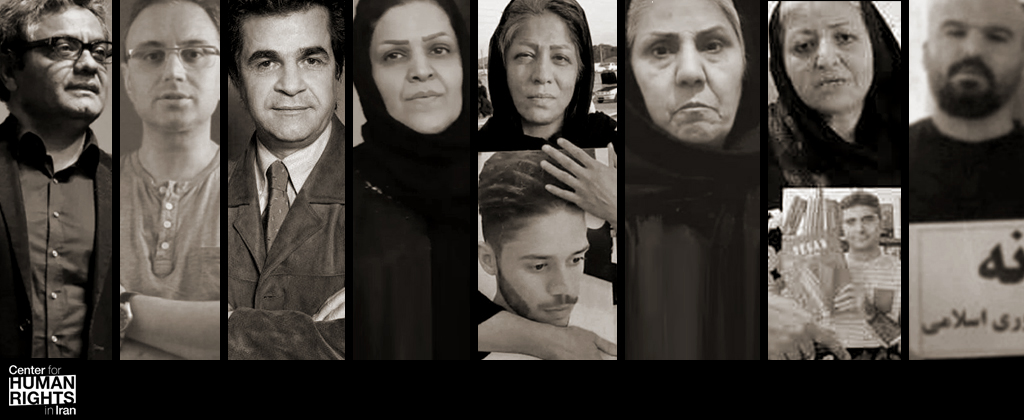
Triggers and Timeline
The Iranian constitution promises robust rights, including freedom of speech, assembly, and association. But the government is also empowered to protect Islam and national security, including by making arrests for openly criticizing or acting against the state. In the spring of 2022, protests by teachers, pensioners, small business owners, and bus drivers increased as the Iranian economy deteriorated. In May, economic reforms triggered inflation and price hikes. The cost of living soared. Iran’s currency plummeted. In June, the rial reached a record low value—332,000 rials to the dollar—on the open market. The Statistical Center of Iran reported that inflation had increased by 52 percent since June 2021, while prices of food had increased by 82 percent over the same period.
On June 4, Supreme Leader Khamenei blamed the surge of protests on Iran’s enemies. “One is that today, the most important means of the enemies to inflict harm on the country is to pin their hopes on popular protests,” he said. Over the summer, security forces disrupted sporadic protests and arrested dozens, including prominent civil society activists, journalists, and filmmakers.
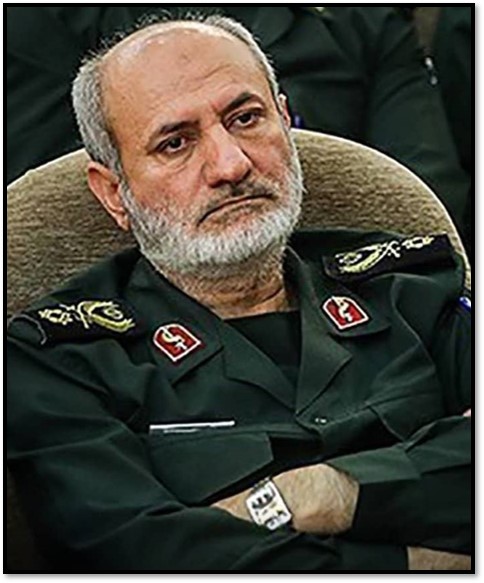
“This new wave of repression and mass arrests comes soon after the appointment of a new head of IRGC Intelligence and after Khamenei's speech calling for repressive measures on par with the dark days of the 1980s,” Ghaemi said. Government oppression did little to prevent new protests. “When so much of the country is struggling to make ends meet, when hunger and economic desperation impact so many people, they have no other option but to publicly protest, no matter how many leading activists are put behind bars,” he added.
Iran has experienced sporadic waves of protests over the past four decades. The 1979 revolution was spawned by protests against the monarchy. In 1999, students in Tehran protested the closure of a popular reformist newspaper. In 2009, millions took to the streets in nationwide demonstrations to dispute the result of a presidential election. In 2017-18, protests broke out in at least 29 out of 31 provinces over economic conditions. In 2019, protests were sparked by a 300 percent increase in the price of gas and change in rationing. Most of the protests have been spontaneous.
Political Figures
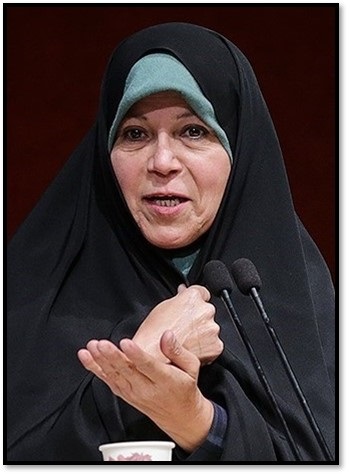
- Faezeh Hashemi, former member of parliament, daughter of President Akbar Hashemi Rafsanjani and women’s rights activist, was charged on July 3 with propaganda against the state and blasphemy. The indictment was based on Hashemi’s comment that the U.S. designation of the IRGC as a terrorist organization should not stand in the way of returning to the 2015 nuclear deal with the United States. The indictment also cited her comment in a social media video suggesting that the prophet Mohammed had wasted the money of his first wife Khadija, a prominent businesswoman. Hashemi later claimed it was a joke. Hashemi had served six months in prison in 2012 for propaganda against the state.
- Mostafa Tajzadeh, former deputy minister of interior and frequent critic of the government, was arrested on July 9. He was charged with conspiring against national security and publishing false information to disrupt public order. A week earlier, Tajzadeh had openly criticized Supreme Leader Ayatollah Ali Khamenei. “Under the current deplorable economic conditions and public dissatisfaction, the failure to revive the nuclear deal has destructive consequences, and its responsibility primarily lies with the [Supreme] Leader,” he tweeted. In 2019, Tajzadeh was sentenced to seven years on similar charges.
Civil Society Activists

- Fariba Adelkhah, anthropologist and a dual French-Iranian citizen, was ordered back to prison in mid-January for violating house arrest. In May 2020, Adelkhah had been sentenced to six years for propaganda against the state. In October 2020, Adelkhak had been released from prison for house arrest.
- Anisha Assadollahi and Keyvan Mohtadi, husband-and-wife translators and labor activists, were arrested on May 9. Assadollahi was arrested for cooperating with a foreign team intending to overthrow the state. She had previously been arrested in May 2019 and sentenced to one year for disturbing the public order. In a social media video on June 27, Assadollahi’s mother, Shafiqa Alemi, said, “Our children’s only crimes are humanism and patriotism.”
- Amir Salar Davoudi, human rights lawyer, was transferred to prison on June 26 to serve a 14-year sentence for insulting the Supreme Leader, spreading propaganda against the state, and forming a group to act against national security. He had been granted bail in June 2021 for his retrial. In December 2021, the Tehran Court of Appeals reduced Davoudi’s sentence from 30 years to 14 years.
- Mohammad Habibi teacher union activist, was detained on April 30 for propaganda against the state. Habibi, spokesperson of the Iranian Teachers’ Trade Association (ITTA), was arrested hours before the nationwide Worker’s Day protests on May 1.
- Saeed Madani, social activist and sociologist, was arrested on May 16 for meeting suspicious foreign actors. In January, authorities had prevented Madani from leaving Iran for a fellowship at Yale. Between 2012 and 2016, Madani had served part of an eight-year sentence for spreading “propaganda against the state” and “acting against national security.”
- Asal Mohammadi, labor activist, began serving a one-year sentence on July 11 for propaganda against the state.
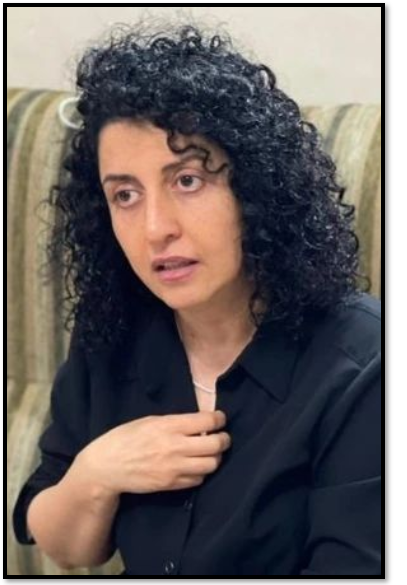
- Narges Mohammadi, human rights activist, was ordered back to prison on April 12 after a medical leave had been granted in February. Days before she returned to prison, Mohammadi had criticized how Iran treats its citizens. Iranians "are fighting and wrestling with the government, we have paid a hefty price with imprisonment, with people being killed on the street, and with executions, and with freedom of speech being sacrificed,” she said in an interview. Mohammadi’s imprisonment followed an appeals court ruling that she should serve six years for spreading propaganda against the state, acting against national security, and membership in the Defenders of Human Rights Centre (DHRC). Mohammadi has been detained several times since 1998 on similar charges.
- Farideh Moradkhani, human rights activist and niece of Ayatollah Khamenei (daughter of his sister), was detained on January 13 for a social media video in 2021 celebrating the birthday of the shah’s widow, Farah Pahlavi. “Do you know the day you left your home, all the flowers wilted, the birds were caged, and joyful boys and girls became sad? Iranian arts and culture lost its protector the day you left,” she said in the video. Moradkhani was the founder and director of the Campaign to Support Prisoners.
- Abolfazl Nejadfath, student activist, began serving a 44-month prison sentence on July 11 for “assembly and collusion against national security” during the November 2019 economic protests.
- Mehdi Salimi, writer and translator, began serving a three-year sentence on June 18 for blasphemy and propaganda against the state.
- Reza Shahabi, labor activist, was arrested on May 12 for cooperating with a foreign team intending to overthrow the state. He was on the board of directors of the Tehran Vahed Bus Company workers’ union in Tehran; the union had organized a bus driver strike that began in mid-May.
Journalists
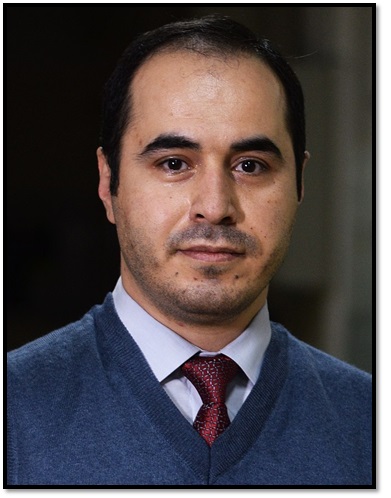
- Vida Rabani, journalist and social media activist, was sentenced on June 29 to five years of prison for collusion against national security, insulting the sacred, and disrupting public order related to her social media activism.
- Hossein Ronaghi, blogger, was arrested on February 23 for propaganda against the state and conspiracy against national security for his Wall Street Journal op-ed. “Our government has slaughtered protesters and tortured political prisoners to suppress them,” he wrote. “In Iran, thinking can be a crime.” Ranaghi was released on bail on March 2. He had earlier served six years in prison.
- Keyvan Samimi, journalist, was ordered back to prison on May 18 after a medical leave had been granted in February. In 2019, Samimi had been sentenced to three years for collusion to act against national security during Labor Day protests. In 2009, he had also been sentenced to six years for protesting the outcome of the disputed 2009 presidential elections.
Cultural Activists
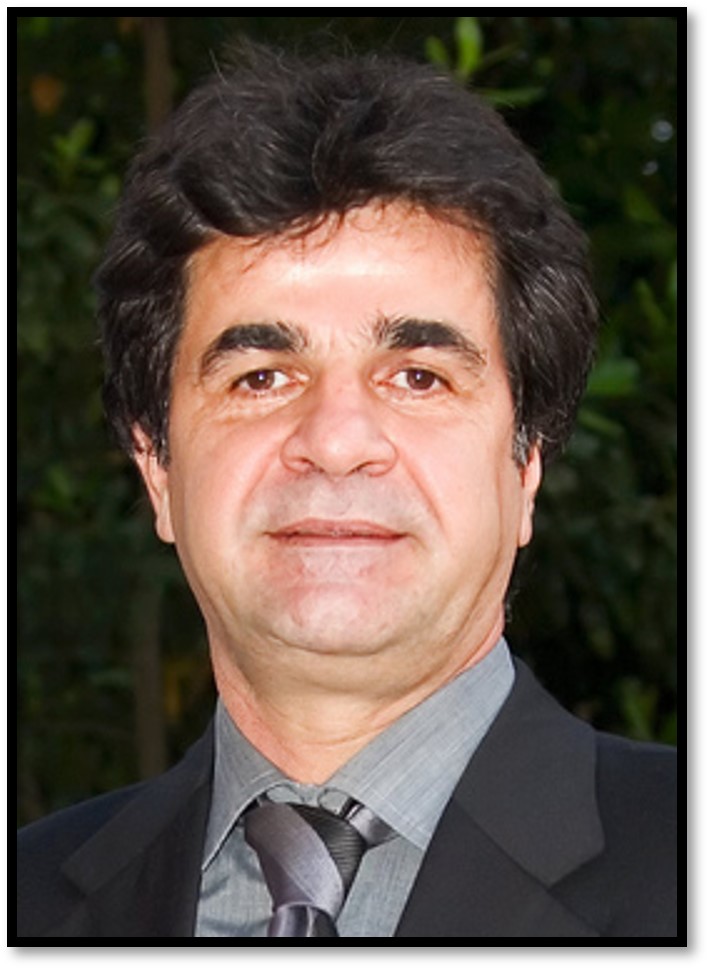
- Mostafa Aleahmad, filmmaker, was arrested on July 8 for participating in the “lay down your gun campaign” on social media protesting the violence by security forces against street protestors. Aleahman and colleague Mohammad Rasoulof were accused of security offenses.
- Mina Keshavarz and Firoozeh Khosravani, documentary filmmakers, were detained in early May. They were released on bail on May 17 and banned from leaving the country for six months.
- Jafar Panahi, world-renowned film director, was detained on July 11 as he inquired about the conditions of imprisoned colleague Mohammad Rasoulof. In May, Panahi had supported the “lay down your gun” campaign by signing an open letter in support of popular protests. The letter cited government “corruption, theft, inefficiency, and repression” as causes for protest. On July 19, Judiciary Spokesman Massoud Setayeshi announced that authorities took Panahi to Evin Prison to serve a six-year sentence Panahi had been charged with in 2011 for “propaganda against the system.”
- Mohammad Rasoulof, prize-winning filmmaker, was arrested on July 8 for leading the “lay down your gun” campaign on social media. In 2011, Rasoulof had been sentenced to one year in prison for “propaganda against the system.”
- Reihane Taravati, photographer, was detained on May 9. Taravati had been arrested and sentenced to a year in prison in 2014 for publishing a video of Iranian youth dancing to Pharrell Williams’ song “Happy,” which the judiciary deemed to be against Islamic norms and values.
Katelyn Balke is a research assistant at the Woodrow Wilson Center and graduate student at the Maxwell School for Citizenship and Public Affairs at Syracuse University.
